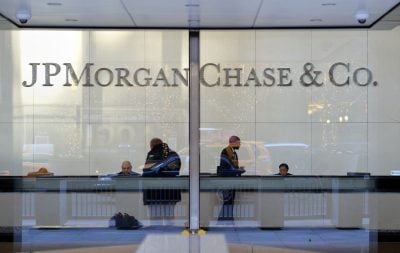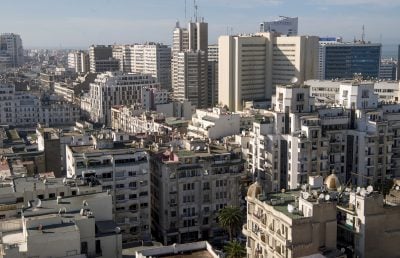The government of Nigeria announced its latest N150bn sukuk in May. The funds are ring-fenced for road-related projects and the bonds are aimed at deepening financial inclusion in the country. Report by Mushtak Parker
The Federal Government of Nigeria’s (FGN’s) latest N150bn ($0.39bn) sukuk issuance (Islamic trust certificates) began on 21 May and closed on 2 June 2020. It was aimed at the country’s growing cadre of retail investors in government bonds and sukuk, under Abuja’s financial inclusion policy aimed at giving ordinary people a stake in the economic development of their country.
Retail investors accounted for just under 5% of the subscription to the debut N100bn sukuk in 2017, but this figure increased substantially for the second N100bn sukuk in December 2018, to 17.33% of the total allotment.
Early indications are that this trend has continued for this latest sukuk, with Nigerians irrespective of ethnicity and faith taking up the call to subscribe.
The rationale for sukuk, says Patience Oniha, Director General of the Debt Management Office (DMO), “is to enable the government to diversify its sources of funding, deepen the market for domestic securities and improve financial inclusion. Sukuk has a role to play in future government public debt programmes.”
Nigeria’s sovereign sukuk issuance is unique in another sense. While governments all over the world are scurrying to raise funds through bond and sukuk issuances to mitigate the health and economic impacts of the coronavirus (Covid-19) pandemic, Abuja has to date ring-fenced the proceeds from its three sukuk issuances specifically for infrastructure financing.
“Proceeds will be used solely for the construction and rehabilitation of key roads across the six geopolitical zones of the country,” says the DMO in the offer documents.
It is perhaps the ultimate irony that the pandemic that has ravaged the world since December 2019 has been a major boon for the issuance of domestic bonds and sukuk as governments seek to fund emergency mitigation and business continuity packages.
Quantitative easing in the West is primarily funded by central banks selling treasury bills and bonds. In the MENA region and South East Asia, sukuk certificates seem to be the preferred route for Saudi Arabia, Turkey, Bahrain, Indonesia and Malaysia, albeit some of them have a diversified approach to raising public debt which includes conventional offerings.
In Africa the two largest economies, South Africa and Nigeria, have a similar diversified approach, which includes external borrowings and international and domestic debt issuances through bonds and sukuk.
The DMO of the Nigerian Ministry of Finance (MoF), for instance, said in January that new borrowing for 2020 “comprises of N850bn and N744.99bn for external and domestic borrowings respectively. The new domestic borrowings will be raised through FGN Bonds, Sukuk, FGN Savings Bonds and possibly Green Bonds.”
Both countries, despite being major commodity producers, have a low revenue base relative to their GDP, which is clearly reflected in their high debt service to revenue ratio.
Nigeria’s debt service/revenue ratio for instance, was 51% at the start of 2018, much higher than the 7.5% for both the UK and Canada at the end of September 2019, precisely because the latter’s revenue bases are much higher.
The latest sukuk certificates have a tenor of seven years and mature in June 2027. The certificates were issued through FGN Roads Sukuk Company, a special purpose vehicle wholly-owned by the Ministry of Finance, on behalf of the federal government. The transaction was managed by FBNQuest Merchant Bank Limited and Lotus Financial Services Limited.
The transaction involved using the cream of Nigeria’s banking as receiving banks and placement agents, including the country’s two dedicated non-interest banks, Taj Bank and Jaiz Bank, and local subsidiaries of the UK’s Standard Chartered Bank and South Africa’s Standard Bank, namely Stanbic IBTC Bank.
Very competitively priced
The sukuk was priced very competitively, offering a rate of 11.2% per annum, payable half yearly. This compared to 15.743% for the 2018 issuance and 16.47% for the 2017 sukuk. This despite the outbreak of the Covid-19 pandemic, the sharp fall in crude oil prices and their impact on the global economy.
This indicates sustained investor confidence in Nigerian sovereign debt risk, and the country is building up a sukuk yield curve independently of the regular FGN bonds. It also indicates that the DMO is comfortable with sukuk as part of the FGN’s public debt raising environment, especially from a value-for-taxpayer point of view, and that sukuk issuance is here to stay.
The major challenge is whether these successful government sukuk issuances would now pave the way for corporates and social institutions tapping the market to raise funds. Dangote Mills was working on its debut sukuk towards the end of 2019, but the Covid-19 outbreak has put that on hold for the time being.
The market, investor community and construction companies linked to road and transport projects have been lobbying the government to continue issuing sukuk in this sector. The structure includes several corporate governance features which have endeared investors, the retail community and contractors to the instrument.
It includes having an arms-length independent audit body to oversee the draw-down of the funds against work completed, commissioned to pre-empt any corruption and misuse of funds; ring-fencing the funds for the project and work stated in the offer documents; contractors receiving payment promptly as and when due; and sukuk certificate holders getting paid on time on the given due dates on a biannual basis.
Development impact
The social and development impact of FGN sukuk, especially in its role in the financing of the rehabilitation of key arterial road projects, is implicit. As the DMO explained, it “has brought reprieve to road users, improved travel times between major commercial cities, linked borrowing and government expenditure to specific critical projects, helped increase the flow of cargo and passenger traffic across major cities, and improved infrastructure delivery across the country.”
An important add-on for investors is that the sukuk certificates qualify as securities in which trustees can invest under the Trustee Investment Act; and as government securities within the meaning of the Company Income Tax Act and Personal Income Tax Act for Tax Exemption for Pension Funds. They are also classified as liquid assets by the Central Bank of Nigeria.
The sukuk certificates are also in the process of being listed on the Nigerian Stock Exchange and FMDQ OTC Securities Exchange.
Perhaps it is not surprising that at the time of writing, the National Treasury in South Africa, too, is pondering the issuance of the country’s debut rand-denominated sukuk. South Africa started the sovereign sukuk issuance trend in 2014 when it became the first and only African government to issue a sukuk in the international market, with its $500m benchmark sukuk.
Other African governments that have issued local currency sukuk include Côte d’Ivoire, Senegal, Togo and Mali.
Read more about Islamic finance in Africa
Nigeria’s debut N100bn sovereign sukuk
Want to continue reading? Subscribe today.
You've read all your free articles for this month! Subscribe now to enjoy full access to our content.
Digital Monthly
£8.00 / month
Receive full unlimited access to our articles, opinions, podcasts and more.
Digital Yearly
£70.00 / year
Our best value offer - save £26 and gain access to all of our digital content for an entire year!
 Sign in with Google
Sign in with Google 


